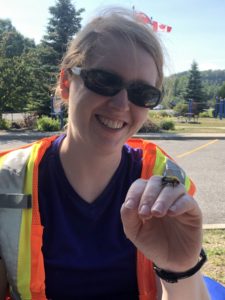
The rapidly growing field of citizen science, which gives volunteers an opportunity to collect or analyze data to contribute to research, has spurred countless projects around the world. Some programs involve testing hypotheses while others are grounded in simple data gathering. Projects can be developed by academics or designed at the grassroots level.
A review paper by two York University researchers, set to appear in the September issue of the journal Biological Conservation, explores how citizen science initiatives can be improved and what methods make them successful.
In “Power of the People: A Review of Citizen Science Programs for Conservation,” Victoria MacPhail, a PhD candidate in environmental studies, and Assistant Professor Sheila Colla, of the Faculty of Environmental Studies, discuss different methods of experimental design, data collection and analyses; how participants are recruited, engaged and rewarded (including who participates and why); the effect of participation on the volunteer’s knowledge and actions; and the impact programs have on policy and other conservation actions.
MacPhail said the review showed the true power and potential of having members of the public participate in citizen science research projects.
“With their efforts,” she explained, “not only are projects able to collect valuable data to help answer questions now and into the future, but also connect researchers, volunteers, communities and other groups together. Participants also increase their knowledge of the world around us and often take further action for environmental issues.”
In their paper, the researchers outline challenges that need to be overcome in order for projects to be successful in the long term – including barriers to participation, insufficient funding, volunteer coordination, lack of specific equipment and standardized assessment methods, political and legal impediments, poor design and a lack of awareness and acceptance from professionals, among others – and explore ways that these challenges can be met to improve the citizen science field.
MacPhail said this research will be of interest to anyone currently working on citizen science projects, considering doing so, or interested in learning more about the field.
“Power of the People: A Review of Citizen Science Programs for Conservation” is currently accessible for free via an author share link.
